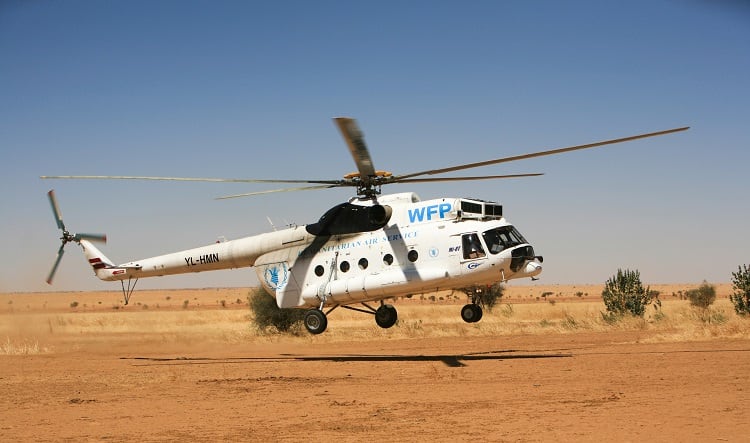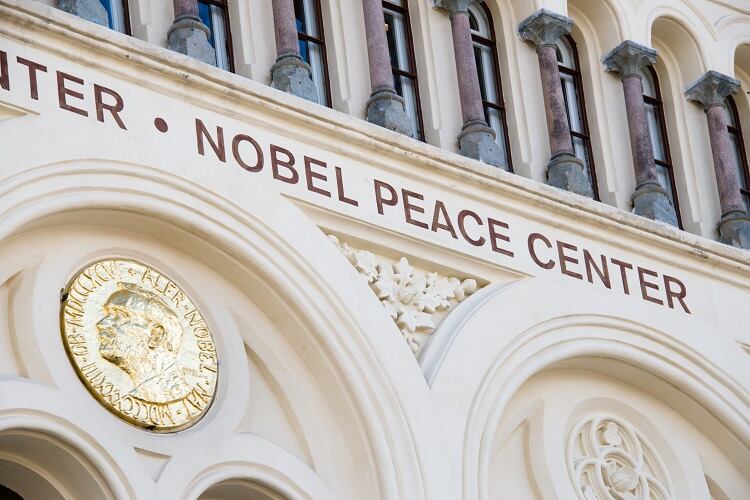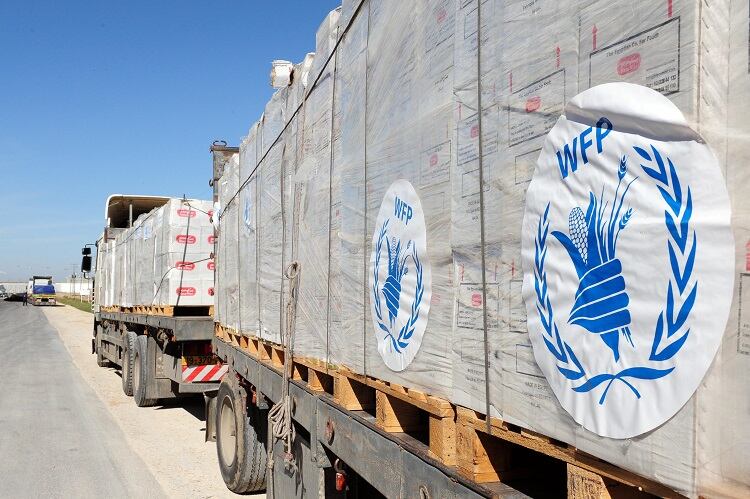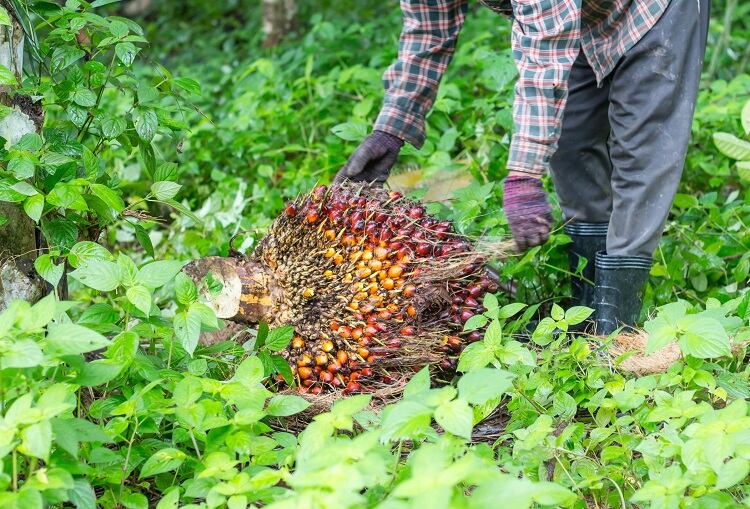Ten days ago, the Norwegian Nobel Committee awarded the Nobel Peace Prize for 2020 to UN agency the World Food Programme (WFP).
The prize is awarded to those who have “done the most or the best work for fraternity between nations, for the abolition or reduction of standing armies and for the holding and promotion of peace congresses”.
In WFP’s case, the award is an acknowledgement of its efforts to combat hunger, for its contribution to bettering conditions for peace in conflict-affected areas, and for ‘acting as a driving force’ to prevent the use of hunger as a weapon of war and conflict.
“As the UN’s largest specialised agency, the World Food Programme is a modern version of the peace congresses that the Nobel Peace Prize is intended to promote,” noted the committee.
“The work of the World Food Programme to the benefit of humankind is an endeavour that all the nations of the world should be able to endorse and support.”
So what does winning this award mean to WFP? “We’re deeply honoured and humbled,” deputy acting director of supply chain, John Crisci, told FoodNavigator. “And it’s a big congratulations to the [WFP] family that believes in trying to find a solution to eradicate hunger.”
‘It was a big surprise’
Crisci was in his office at WFP headquarters in Rome when he learnt of the news. “It was so unexpected,” he recalled. “There were no rumours in the hallway, none of us had any idea.”
The supply chain expert was in the midst of working on a food allocation plan for nutritious foodstuffs in ‘hard hit’ countries such as Yemen and South Sudan, where he said food needs continue to rise. “The availability of this specialised commodity is very difficult to find and in high demand, so we were prioritising the allocations [when we heard the announcement].”
Those in the office stopped dead, recounted Crisci. “The pens dropped. I sat there for 10 seconds, and said ‘I can’t believe it’, then jumped onto the internet and there it was.”
When members of the team started to congratulate each other, they realised they couldn’t high-five due to social distancing restrictions. “We did a bit of an elbow dance,” he recounted, “It was a special moment. I thought: ‘Wow, our message must be resonating out there’.”
When asked what stood out about WFP to the award judges, Crisci said the agency’s ‘continuous drive’ to eradicate hunger, its ‘deep field’ presence, and its belief in ‘heavy monitoring’ and oversight, must have had something to do with it.
WFP delivers up to 4.5m metric tons of food each year to 100m people living in around 80 countries.
“When we look at the places we work, a majority of our operations are serving areas with man-made disasters. Hunger has risen to 690m people, and nearly all the world’s major food crises – 10 out of 13 of them – are driven by conflict,” Crisci told FoodNavigator.
“So that gives you an idea of where we are and what our presence is like. That might have made the difference, you know.”

2020 ‘one of the most difficult years’
2020 stands out as one of the most challenging years in WFP history. The UN agency had to deal with the coronavirus pandemic, alongside work in conflict areas such as Yemen, the Democratic Republic of Congo, Nigeria, South Sudan, and Burkina Faso, where food insecurity is rife.
In addition, WFP was confronted by locust infestations, drought, and Ebola in Africa. “It was one of those particular years,” recounted Crisci. “But there were also some big achievements.”
In 2020, the agency ran two global operations simultaneously. The first was to deliver food to 100m people worldwide, and the second was to mount a global COVID-19 response.
Under this second operation, WFP was responsible for the transport of medical items, including masks, PPE, and ‘everything that was needed out there’ as well as the health and humanitarian staff needed to respond to the crisis, said Crisci. “We’re providing a global service to governments, to our partners, and to NGOs who want to support the COVID operation.”
According to the supply chain expert, WFP was flying into ‘some of the most difficult places’ and was known as ‘the biggest airline out there’ during the peak of COVID-19.
Overall, the pandemic did not stop the agency from feeding people, we were told. “Sure, we had some slowdowns, sure we had to change our distribution patterns, but at the end of the day, we made sure no one went hungry – and at the same time, we were furnishing the world with all kinds of different equipment.”

COVID ‘slowdowns’ appeared to have the greatest impact early on in the piece, when ‘heavy buying’ of staple commodities such as rice, wheat, and beans drove pricing upwards. This was particularly challenging for countries predominantly reliant on imports.
These issues ‘fizzled out right away’, however, as governments made it their priority to keep food supply chains running, he told this publication. “The world came together and said: ‘Food should be made available, sold at fair prices, and allowed to travel across borders and into other countries to feed people’.”
COVID not the biggest challenge
Given the far-reaching impacts of COVID-19, one would be forgiven for assuming the pandemic is WFP’s primary challenge. However, this is not the case.
Rather, conflict is the biggest hurdle – as demonstrated by WFP’s active participation in promoting the UN Security Council’s adoption of Resolution 2417 in 2018. The resolution marks the first time the link between conflict and hunger has been explicitly addressed.
At the same time, the Security Council underscored UN Member States’ obligation to help ensure that food assistance reaches those in need and condemned the use of starvation as a method of warfare.
“The resolution breaks new ground,” said Crisci. “The world will never be able to eliminate hunger unless there is peace,” he added, offering the current example of Yemen, which has been in civil conflict since late 2014.
“Yemen is one of our most costly [operations], costing WFP about $1bn [per year]. Imagine what we could do with $1bn if there was peace. Imagine what we could do with the money we receive every year – which is around $8bn. We could make a big difference. But until this conflict [ends], we’re far from turning the corner to look at development and prosperity for these people.”
A boost to WFP’s visibility

The prize goes to everyone that is doing something to eradicate hunger, whether that be the UN, WFP, its partners and suppliers, NGOs, its private donors and government donors, said Crisci.
And within the agency itself, the supply chain expert stressed that recognition goes to the ‘hardworking people out in the field’ who ‘put their lives on the line’ every day. “Working in some of the most harsh and difficult conditions, what they experience is nothing compared to what we experience here at headquarters.”
The agency will continue to focus on ‘hot spots’ in the coming year, in areas including Yemen, South Sudan, the Middle East, and West Africa, and will stay focused ‘not just on emergencies, but on development and school feeding’.
Yet undeniably, something has changed. “The level of visibility that comes with receiving this award has made WFP known to the world. That turns a corner,” said Crisci.
Could this heightened visibility help attract greater funding? Well, it may have done so already. Shortly after the Nobel Peace Prize winner was announced, agri-food giant Cargill said it would donate $1m to the agency. Cargill has a longstanding partnership with WFP USA.
“The generosity to WFP [over the years] has been overwhelming, and we’re hoping we can attract partners from the private sector,” said Crisci. Support needn’t be purely monetary, he continued. “Tech companies, for example, could offer us in-kind services, to help us with our vulnerability mapping to track our beneficiaries.
“It can help us do our job better, which leads to our beneficiaries leading better lives.”



